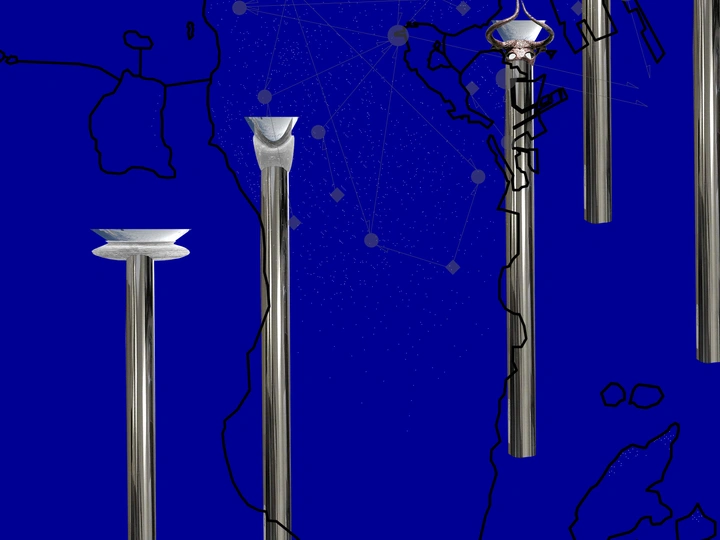Water Blossoms

Alexander Cyrus Poulikakos
Alexander Cyrus Poulikakos (born 1993 in Illinois, U.S.A.) is a Swiss architect based in Zurich. After finishing his studies at ETH Zurich, he worked as a co-project leader at BS+EMI, alongside organizing the Iranian Film Festival Zurich and publishing the book Resurrecting Babylon. In 2024 he completed a residency at Rhizome in Algiers through a Pro Helvetia travel grant. Currently he teaches architectural design at the chair of Mariam Issoufou at ETH Zurich and runs studio TEKKEH. The name tekkeh is derived from the word تكه in farsi, translating to “fragment” or “piece”. His practice is expressed in architecture, textile, collage, photography and text.
Growing up in Switzerland as a child of Iranian and Greek immigrants, he became fascinated with the global condition and the portrayal of the east and the concepts of Orientalism and Occidentalism. This passion grew stronger after living in Bahrain for 9 months for an internship and travelling the region extensively.
The relationship between the saltwater and freshwater is crucial to Bahrain’s economic, cultural, historical and political existence. The archipelago currently holds one of the lowest freshwater resources per capita worldwide contradicting a comparatively high consumption per capita.
Bahrain’s main freshwater source, the Dammam Aquifer, is rapidly shrinking and has become so strongly exploited that its salination level is constantly rising, creating the largest threat to Bahrain’s natural environment. In order to keep up with the archipelago’s explosive urbanization and population growth originating in the discovery of oil, desalination plants fueled by large amounts of locally extruded gas are producing a majority of the water needed for agricultural and domestic use.
Water Blossoms introduces punctual freshwater sources throughout the islands’ dense urban areas as well as the rural regions with reduced access to larger freshwater infrastructures using atmospheric water harvesting. Through this new urban infrastructure the water shortage is not eliminated, but a way to relieve the Dammam Aquifer from its extreme extraction and danger of extinction is introduced as elements for everyday life. This technology, developed at ETH Zurich, allows continuous and completely passive harvesting of the water in the air.
This low-cost technology can be combined with local technologies, crafts and skills in order to achieve a site-specific sustainable solution with universal application.
In this approach water is collected from the atmosphere through radiative cooling and condensation and subsequently stored, creating a regenerative water source anybody can access, disabling a segregation of indispensable resources.
The harvesting object consists of a cone-shaped aluminum shield, a selective emitter and a water collection vessel. The vessels, made of clay, stores and cools the harvested water and are closed off on top by the radiation shield.